The Drawing Room
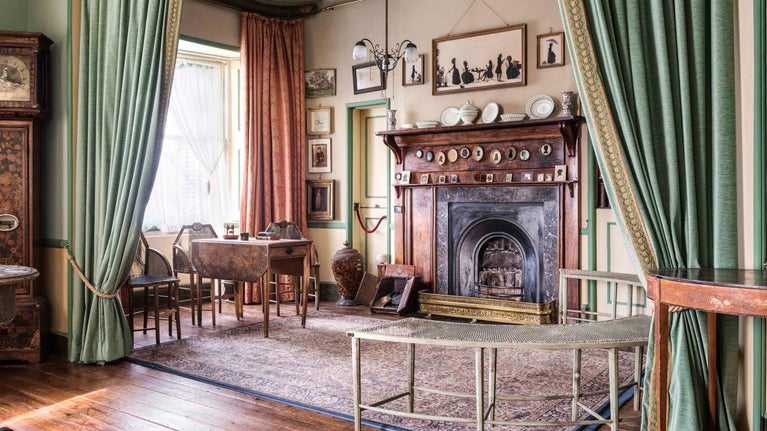
While A la Ronde is well known for the collection of trinkets, curios and thousands of shells throughout the house, the Drawing Room in particular tells us stories woven together by intrigue, innovation and artistic talent.
Stepping though the doorway into one of the biggest of the main rooms, the Drawing Room, your attention is directed toward one of two large sash windows, designed to maximize the intake of light. Proudly, the position and shape of this window invites you to look upward, and your eyes are met with an adornment of colours, shapes and symmetry: The Feather Frieze.
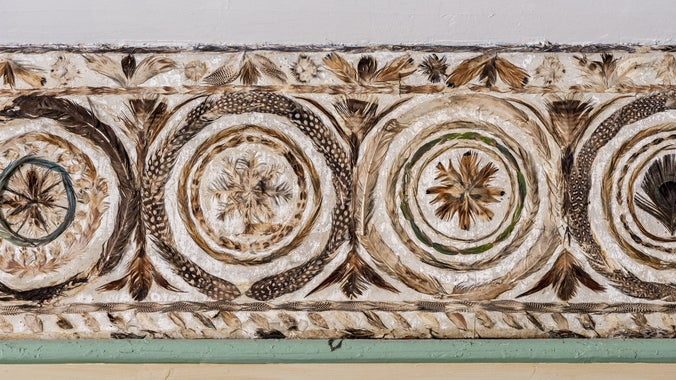
The Feather Frieze in the Drawing Room is one of the most intricate details of the house. Made from native game birds, peacocks, chickens and parrots, large concentric circles frame the ceiling while smaller pieces swirl their way over doorway and fireplace
Despite 200 years of multiple owners, exposure to light and the removal of an original partition wall, it appears largely intact – attached using isinglass (a type of gelatine obtain from fish) it is a prime example of the Parminters’ creative vision.
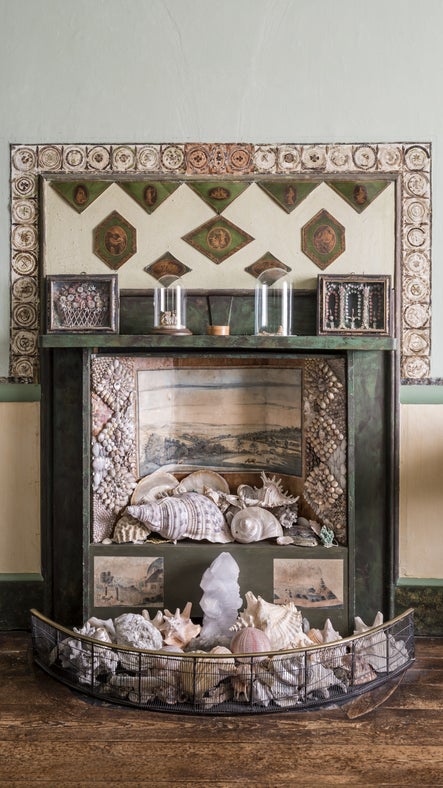
Colours around and directly above the door have slowly faded from the hundreds of years of sunlight, however above the window you’ll find a more vibrant tone to the feathers. The shape of the room and framing of the window keeps these sections better shaded during the day and though time has passed the true colours of the Feather Frieze have been preserved.
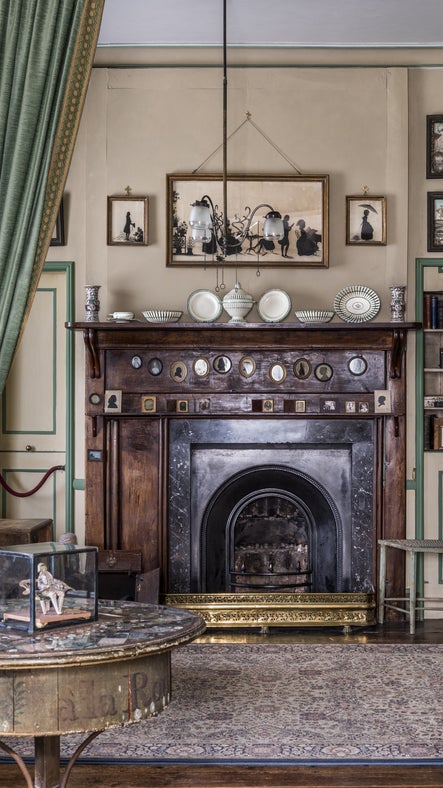
Within the Drawing Room five pictures hang on the far wall offering a myriad of scenes to discover. Men hunting quail, a woman holding her child, and a grand house framed by an avenue of trees; just some of the original artwork created using an unusual medium: sand and seaweed.
Jane and Mary Parminter live up to their creative reputation and in keeping with their use of naturally, locally sourced materials.
With green, blue and yellow washes of watercolour act as backgrounds, these sand and seaweed pictures highlight scenes of what we assume would have been day-to-day life for many.
Several of the frames, dusky in colour, are lined and decorated with sand. Adding texture and intrigue to the already impressive pieces of craft.
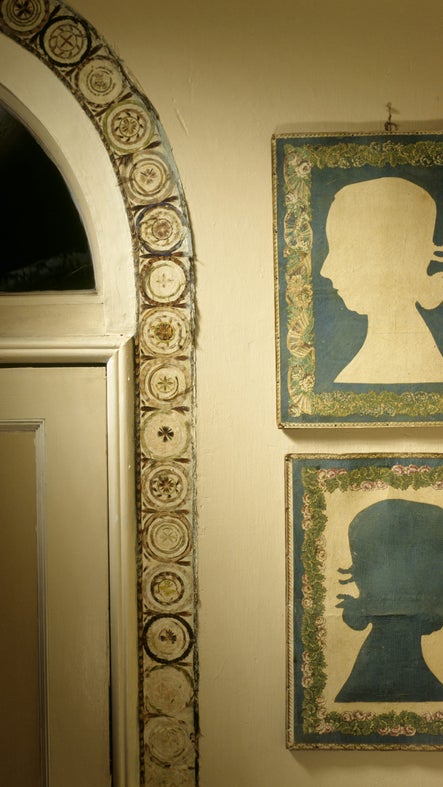
The Reverand Oswald Reichel and his wife Julia moved to A la Ronde in 1891, where he began to immerse himself within local history.
Significant changes were made to A la Ronde during Reichel’s ownership. The Drawing Room saw a dramatic change, being converted from three separate rooms into one large greater Drawing Room.
Evidence of these changes are visible now, being the only room with two large sash windows and one small diamond window.
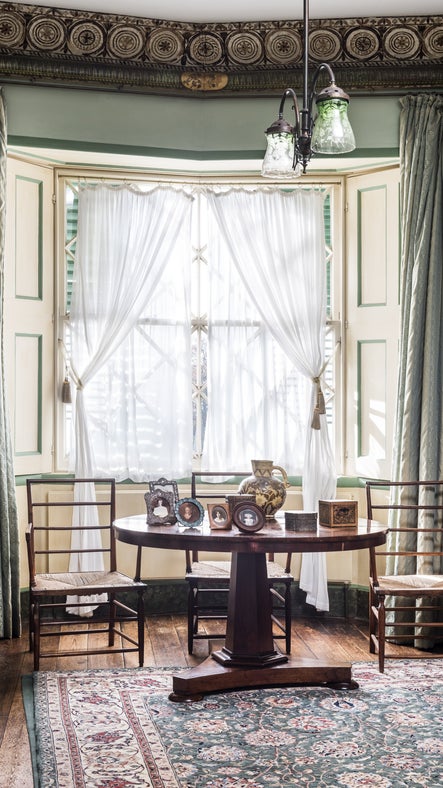
Along the ceiling evidence of the supporting beams from each wall can be seen in the iconic ‘wedge’ shape with connecting picture rails. While below visitors’ feet floorboards abruptly change direction highlighting the design of the original building before Reichel’s time.
All of these modifications made the Drawing Room more fitting for a Victorian gentleman and his wife. While his sweeping changes contravened Mary Parminter’s Will, his approach to the decorative interior and preservation of the original pieces shows he appears to have shown efforts to preserve the essence of the house as it was known before his time.

The Compendium
The Compendium is a collection of stories to delight and surprise. You can explore all things A la Ronde here in one central place for the first time. We will be adding new stories for years to come.
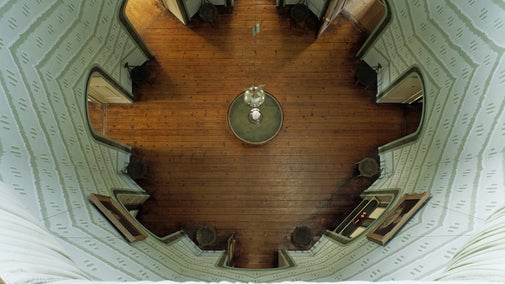
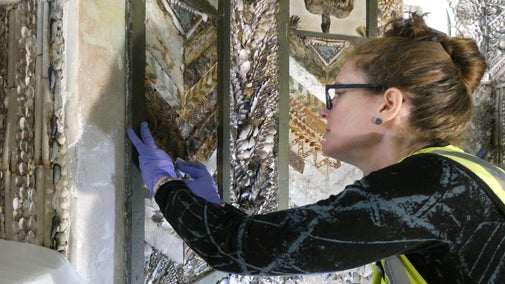
Clocks and Pests: A day in the life of a Collections Assistant
Find out how the Collections Assistants at A la Ronde look after the house and its collections. From the many clocks to the smallest of its inhabitants: pests.
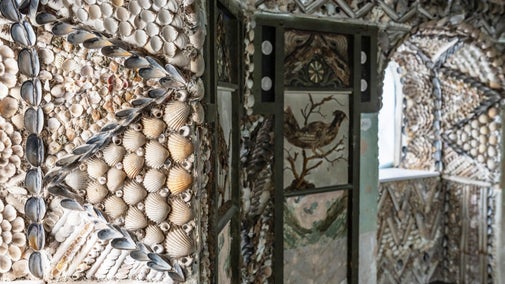
Our Conservation Story: Conserving the past, creating the future
Learn more about the conservation work undertaken at A la Ronde during the 'Conserving the Past, Creating the Future' project.